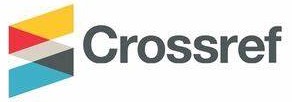Analisis Kualitas Air Sumur Gali Di Kelurahan Maubeli Kota Kefamenanu Kabupaten Timor Tengah Utara
DOI:
https://doi.org/10.32938/jsb/vol5i1pp31-38Keywords:
Dug well, E coli, water quality, MaubeliAbstract
The existance of dug well is important for the people of Maubeli from Kefamenanu City. The society consumed it since their adults been there. As quality as water consuming needed to be tested for sanitation and hyegene issues. The aims is to analyze dug water quality in Maubeli Village for physic parameters (temperature, odor, colour, TSS), chemistry (pH, COD, and microbiology (E.coli). Water sample from 5 locations and analized locally for temperature, odor, colour, pH and in Laboratorium Dinas Lingkungan Hidup dan Kehutanan from East Nusa Tenggara for TSS dan COD. Data compared to Peraturan Pemerintah No. 22/2021 and Permenkes No. 2/2023. The resulst showed that the temperature for 1st dan 2nd are 250C, 3rd to 5th: 270C, there’s good for odor and colour. TSS: 2,5 mgL-1, 3,5 mgL-1, 9 mgL-1, 4 mgL-1, and 5 mgL-1. pH: (8,1), (7,9), (8,2), (7,9), and (7,6). COD: 15,16 mgL-1, 17,02 mgL-1, 9,61 mgL-1, 12,05 mgL-1, and not found E. coli for all dug wells. Base on snapshot sampling that the water quality is good to be consumed but still need to boil it.
Downloads
Published
How to Cite
Issue
Section
License
Authors who publish articles in Journal Science of Biodiversity agree to the following terms:
- Authors retain copyright of the article and grant the journal right of first publication with the work simultaneously licensed under a CC-BY-SA or The Creative Commons Attribution–ShareAlike License.
- Authors are able to enter into separate, additional contractual arrangements for the non-exclusive distribution of the journal's published version of the work (e.g., post it to an institutional repository or publish it in a book), with an acknowledgment of its initial publication in this journal.
- Authors are permitted and encouraged to post their work online (e.g., in institutional repositories or on their website) prior to and during the submission process, as it can lead to productive exchanges, as well as earlier and greater citation of published work (See The Effect of Open Access).









.png)




